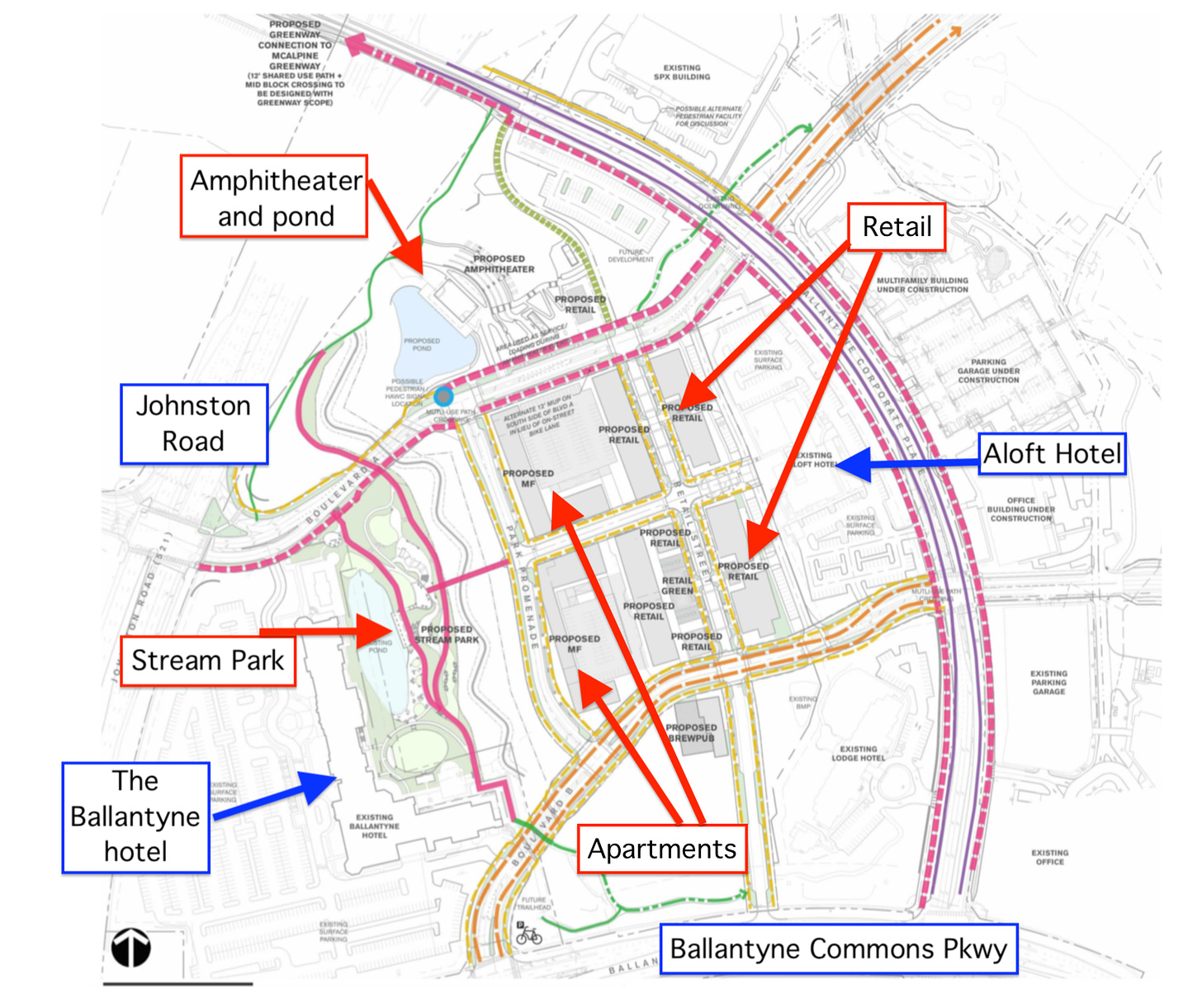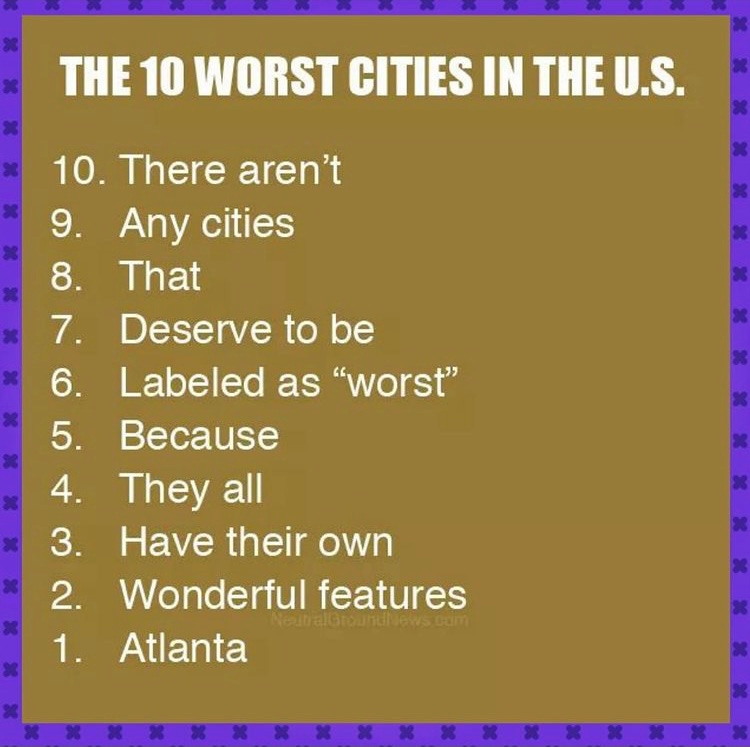Why don’t teens have part-time jobs anymore?
Plus: Hearst Tower architect blasts Truist over sign installation; Ballantyne developer reveals more details; CMS leader says Covid spread 'not taking place' in schools; Strip club permit stripped
The Ledger offers free and paid subscription plans. And today (Monday, Nov. 30) is the final day to get in on our once-a-year sale. Through tonight, the paid version is 10% off.
Today’s Charlotte Ledger is sponsored by Queens University of Charlotte. Start with a class. Earn a graduate certificate. Build to a master’s degree. Looking to add a specialization, gain new skills, or get that promotion? We’ve created 15+ graduate certificate offerings in business, communication, nursing and education. Inquire today and start in January.
Column: Part-time jobs for teens seem like they’ve gone the way of the dodo bird. Work experience just may be that missing piece of the college application.

By Colleen Brannan
One of my many part-time pastimes is coaching high school seniors on college applications and essays. Over the past few cycles, I’ve noticed an alarming trend: Despite an abundance of extracurricular activities, none of them are part-time jobs during the summer or school year.
With application deadlines for many colleges and universities looming, it’s the appropriate time to ask: Why don’t more teens have part-time jobs anymore? (And, before anyone pounces on me about how dangerous that could be during Covid, this problem has existed long before Corona and encompasses all of high school, not just this year.)
Unscientific research: Some quick polling at soccer games and neighborhood gatherings, of both teens and parents, confirmed that part-time jobs are currently as popular as The McRib. However, teens seem more sensible than their parents as to why, citing the demands of schoolwork and athletics, as well as pressure to increase their GPAs.
Parents, on the other hand, said things like, “I wish I could make my daughter get a job, but she says it isn’t cool,” and my personal favorite, “It seems mean to make them work.” Hmm … Leaves me wondering who’s in charge of these households.

School of life: I worked long before I could drive and not because anyone made me. The idea of having my own money fueled me from an early age and amused my parents, who were always willing to shuttle me to my latest gig, sometimes at ungodly hours. It started with babysitting and progressed to restaurant, telemarketing and office work. Reflecting back on all of these jobs, it occurs to me I learned something from each opportunity — some at the time and others after the fact.
Babysitting: As a popular babysitter in the neighborhood, making a whopping $5 an hour, I quickly learned some customers were more reliable than others. After enough last-minute cancellations and commitments cut short, I set a four-hour minimum on weekends and charged cancellation fees. This taught me to stand up for myself and always be respectful of people’s time. When I became a parent, I remembered babysitting is a two-way street and to treat the good ones like gold.
Restaurant work: As a hostess, cashier and server at several less-than-fine dining establishments, lessons were everywhere. Some of that time was spent at Bob’s Big Boy during the controversial “Should He Stay or Go” campaign where the jolly mascot almost got ousted but, alas, was saved by the voting public. My 30-year public relations career has since taught me this was a media stunt, but at the time, I learned the power of multitasking. For example, during one trip through the dining room, you can take orders, drop checks, refill waters and chat customers up for better tips. I also learned the hard way that the server pays when drunk midnight breakfast bar customers dine and dash. I believe my mom called that one “character building.”
Telemarketing work: A friend got me involved in one of her latest get-rich-quick schemes, a telemarketing job for magazine renewals, that paid $12/hour — which was an unheard of wage at the time. Sounds easy enough, right? Not exactly. This was an exercise in rejection and mental toughness. Lots of hangups and hollering, but the saddest of all were the lonely old folks who just wanted to talk to someone. The most shocking response was when I asked a woman if there was a change of address for her husband and she replied, “Yes, Heaven.”
Office work: Finally, I graduated to the big leagues, landing an office assistant job at a local law firm specializing in real estate for $15/hour. I wondered why they were paying me so much until I realized I was putting together closing packages and doing title searches — a 16-year-old doing the work of a paralegal who would typically be paid twice as much. When I returned there for a college summer, at age 18, they even made me a notary public. Was this getting great experience or being taken advantage of? Who knows, but the money was great.
Thankfully, my own teenagers inherited the same work gene, and since age 14, they’ve both held typical part-time and summer jobs — from lifeguarding and babysitting to restaurant worker and camp counselor — all while getting good grades and playing sports. That makes me really proud, because I know how much more difficult that is to do today than back in my day.
So — what might part-time employment say about a student to a college admissions counselor?
I am not afraid of hard work: Whether it’s manual labor or an internship, opting to work during the school year or summer speaks volumes about determination.
I am well rounded: In addition to rigorous coursework, sports and clubs, work experience is an important extracurricular activity to tout.
I am not lazy: It’s so easy to game all night and sleep all day, but getting up and going to work during the summer shows great maturity.
I am a team player: Most work situations, as well as college-level course work, involve working in teams, so best to learn how sooner than later.
I know how to manage my time: Juggling school, work and a social life demonstrates strong time management skills.
By no means is work experience a requirement for college applications, and it actually falls under “Activities” on the Common App. Your student may already have plenty. However, sharing your early work experiences with them, both happy and horrific, may inspire them to go get a job and make their own stories, all while becoming a more attractive college candidate.
And if they need a little nudge, a quick search of indeed.com shows a variety of part-time positions, appropriate for teens, posted within the past seven days, including:
Chopt @ Park Road Shopping Center, All Positions, $12-16/hour
NoDa Bark and Board, Doggie Daycare Play Yard Attendant, from $9/hour
Insomnia Cookies, Baker/Front Counter, from $9/hour
Dick’s Sporting Goods @ SouthPark Mall, Sales Associate, average base $10/hour
Goodwill @ Steele Creek, Donation Processor, $11/hour
Colleen Brannan owns BRANSTORM PR and even today, says she has at least four part-time jobs if you count this column, college essay coaching and teenager life management. She welcomes more followers on Instagram (Colleen_Brannan), Twitter (@colleenbrannan) and LinkedIn but vows never to join Facebook. Reach her at colleen@branstorm.com
Today’s supporting sponsors are T.R. Lawing Realty…
… and Landon A. Dunn, Attorney at Law in Matthews:
Hearst Tower architect slams Truist’s ‘corporate ego’
The lead architect of the uptown tower now owned by Truist has weighed in on the bank’s installation this month of signs atop the 47-story building. And he’s not a fan, to say the least.
Chuck Hull, a principal in the Atlanta architecture firm Smallwood, signed an online petition opposing the signs and commented:
As the architect of the Hearst Tower, I was terribly disappointed to see the building vandalized in this way. Charlotte has a long history of corporate citizenship, epitomized by Hugh McColl and Bank of America, our clients on the project.
BOA used their need for office space to redevelop uptown Charlotte, leaving a legacy which persists to this day. The Hearst Tower was a prime example of this. BOA didn’t plaster their name on the Corporate Center by Caesar Pelli, the Hearst Tower, or any of the other buildings they developed in uptown. Their priority was to improve the skyline and street life for everyone in Charlotte.
It’s not too late for Truist to pick up the baton from their predecessors and put more importance on corporate citizenship than on corporate ego. The people of Charlotte, and your bank’s customers, are watching.
Hull, reached over the long weekend by The Ledger, said his comments are his personal opinions, not those of his firm, and he doesn’t presume to speak for others. But he added: “That said, I stand by every word.”
Asked by the Business Journal about its new signs, Truist said in a statement: “It’s an honor to be a part of the iconic Charlotte skyline and the Queen City community. Our greatest hope is that our new Truist Center signage comes to represent a symbol of something so much more — a purpose-led company committed to improving education, affordable housing, health care and access to capital for everyone in our diverse community.”
Next uptown sign: The Ledger reported last month (🔒) that developers of Honeywell’s new building submitted a rezoning request to allow signs atop that 23-story structure on South Mint Street, across from Bank of America Stadium. The request calls for 4 signs of 350 s.f. each. The building is expected to be completed in 2021. —TM
New details on huge Ballantyne development
Developer Northwood Office filed plans with the city laying out in the greatest detail yet where it intends to place elements of its Ballantyne Reimagined project, which is envisioned to eventually have 2,380 apartments and 300,000 s.f. of retail. Maps filed with the city show new elements (in red) that include a stream park next to The Ballantyne hotel; an amphitheater and pond on the northern part of the land by Johnson Road at Ballantyne Corporate Place; apartments and retail placed on a small grid of new streets on what is currently part of the golf course. The City Council approved the 454-acre Ballantyne Reimagined rezoning in June, and the plans are an indication that Northwood is moving forward with building infrastructure for the project’s first phase. (Photo illustration by The Ledger — we took the map filed with the city and labeled it for clarity.)
In brief:
New HB2 fight unlikely: Portions of the law that replaced North Carolina’s HB2 “bathroom bill” expire on Tuesday, allowing cities to pass new nondiscrimination ordinances. But Charlotte seems to be in no hurry to adopt new rules. Two Democratic council members said “they are worried that if Charlotte acts alone, it will be a repeat of 2016 again, with Republicans in Raleigh overturning their ordinance,” WFAE’s Steve Harrison reported. (WFAE’s Inside Politics newsletter)
Covid update: The state’s Covid numbers have continued worsening since Gov. Roy Cooper imposed tougher mask-wearing requirements last week. The number of hospitalizations hit a new record on Saturday, at 1,885 — an increase of 65% this month and 20% from a week earlier, according to state data. Other measures including the 7-day average of confirmed cases and percentage of positive tests also moved higher. Cooper said last week that he would consider new restrictions if the numbers didn’t improve over the following week or two.
Covid transmission ‘not taking place’ in schools: Nearly a month into in-person elementary school classes, Charlotte-Mecklenburg Schools superintendent Earnest Winston said he’s seen little evidence of Covid spreading at school. “By and large, what we are seeing locally — that is being borne out by the research across the country — is that the transmission is not taking place in our schools,” he said at a meeting last week. The school board gave Winston the authority to close schools or portions of schools when needed for health reasons or because of staffing shortages linked to quarantines or illness.
School sick-out urged: A Facebook group started by CMS educators opposed to in-person learning is urging teachers to call in sick starting today in order to “keep themselves, their families, and the community safe.” A statement on the group’s Facebook page, CMS Solidarity, asks school employees to answer “yes” to a daily screening question that asks if they have been in close contact with somebody with Covid. “If you won’t lie for yourself, or for your own family, then think about your high-risk colleagues or high-risk family members whose lives might be saved,” organizers said in a post. (WBTV)
Local man nominated: Troutman resident DaBaby was nominated for four Grammy awards last week, but in an Instagram post, the rapper shrugged it off and observed that “he’d come from nothing so ‘I already won,’” The Observer reported.
Earth Fare heads to Davidson: Earth Fare plans to open a store in Davidson, a spokeswoman confirmed to The Ledger last week. It will take the spot of a former Healthy Home Market store at 261 Griffith St. in downtown and is expected to open in January. The organic grocer is reopening stores after filing for bankruptcy in February. Stores in Ballantyne and SouthPark are already open, and previously announced locations in Concord and Fort Mill are also planned. (Ledger web extra)
New role for Miss USA: North Carolina law firm Poyner Spruill announced that Cheslie Kryst, Miss USA 2019, will serve as the company’s first “diversity advisor.” Kryst, who worked as a lawyer in Charlotte before taking a sabbatical for her pageant duties, “will help advance and sharpen the firm’s diversity and inclusion development.”
Mall closes early: Concord Mills closed a few hours early on Saturday after reports of “disorderly” juveniles. (WBTV)
School survey deadline: Today is the final day for Charlotte-Mecklenburg Schools parents to submit a form saying if they require bus transportation for the second semester. It’s also the last day to switch into or out of fully remote learning, which can be done by contacting your school.
Housing code changes sought: Fair-housing advocates are backing a proposal that would require Charlotte landlords to consider renting to felons. The proposal would “add protections for renters with criminal records to the city’s fair housing ordinance” and “stop blanket rejections based on criminal history,” The Observer reported. Council member Renee Johnson said “the criminal record is truly the new Jim Crow.”
Club stripped of alcohol permits: The N.C. ABC Commission suspended the alcohol permits of Club Onyx, a strip club at 5300 Old Pineville Road, on Friday. Agents say they repeatedly saw crowds of people at the club late at night, many with no masks and failing to practice social distancing, as well as “intimate person-to-person contact” between employees and customers, according to ABC records. The club was also serving alcohol indoors. Bars are not permitted to serve alcohol indoors under the state’s Covid rules. The manager told agents alcohol is OK because he considered the club an “eating establishment.”
Loves me some internet
(Source: Neutral Ground News on Instagram)
Local stocks will return next week.
Need to sign up for this e-newsletter? We offer free and paid subscription plans:
The Charlotte Ledger is an e-newsletter and website publishing timely, informative, and interesting local business-y news and analysis Mondays, Wednesdays, Fridays and Saturdays, except holidays and as noted. We strive for fairness and accuracy and will correct all known errors. The content reflects the independent editorial judgment of The Charlotte Ledger. Any advertising, paid marketing, or sponsored content will be clearly labeled.
Like what we are doing? Feel free to forward this along and to tell a friend.
Sponsorship information: email editor@cltledger.com.
Executive editor: Tony Mecia; Managing editor: Cristina Bolling; Contributing editor: Tim Whitmire, CXN Advisory; Reporting intern: David Griffith







